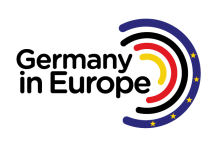This course offers an introduction to the environmental humanities. Literature, culture, and the environment are explored in their interlinkages along five examples: the study of food and consumption, animals and the post-human perspective, waste, climate change, and the question of diversity in the Anthropocene.
Team Learning
This class is taught in the team learning approach. Students will join groups of 5-7 members and work together as a cohesive learning team throughout the quarter. We will use a variety of interactive formats in class including lecture, class discussion, team debates, and presentation of team projects. Students are expected to attend each class period with all assignments completed by the beginning of class and ready to engage in and do online research about the topic of the day (bring your laptops). At the beginning of each unit, students will undergo a thorough readiness assurance process to insure that they are accountable as individuals. The Readiness assurance Test (RAT) consists of questions about a set of pre-assigned readings. Students will take this test twice, once as individuals, and again as teams. Both tests will be scored as soon as possible for immediate feedback. Class time will be devoted to the discussion of the readings and to task-based assignments that apply the critical concepts from the readings and discussions to projects. At the end of the quarter, team members will evaluate each other’s contributions to the team in a peer assessment process. Each team builds a portfolio with all their project assignments and will showcase their work at the end of each unit. At the end of the quarter, all teams will compete with their portfolios during a student conference to collect a maximum number of points.
Module 1: Food and Consumption
The students read three texts (Kafka's Hunger Artist, Grimm's Little Red Riding Hood, and Hawthorne's The Christmas Banquet) that engage with notions of food and consumption in various ways. After discussing the texts together, six groups of students were given the task of developing an art installation that conceptualized and explored issues around the consumption of food.
Module 2: Animals and the Post-Human
The students studied medieval bestiaries and read Kafka's "A Report to an Academy." They were then charged to rewrite the tradition of the bestiary from the perspective of an animal and reflect about the human and the post-human.
Module 3: Waste and Garbage
After watching Fatih Akin's documentary "Polluting Paradise" (Müll im Garten Eden), students were given the task of making one-minute eco-documentaries.
Module 4: Climate Change
A chapter of a graphic novel on climate change:
Module 5: The Anthropocene
A design for an exhibit on the Anthropocene, the Age of Man.
Team 4: Transportation and the Anthropocene
On Friday, March 14, 2014 the six student teams presented their projects in five contests:
- an art installation on food and consumption
- a bestiary written from a non-human perspective
- a one-minute spot on waste
- a graphic novel on climate change
- and a design for an exhibit on the Anthropocene, the Age of Man.
This event concluded a quarter-long student engagement with environmental topics whitin the greater framework of the Germany in Europe campaign that featured Germany's leadership role in environmental policy. Teams were competing for prize money given out as part of the campaign sponsored by the German Embassy and the German Information Center. Give away items such as T-shirts, lunch boxes, pens, and notepads were available for the audience of faculty and students that came to pick the winning teams.
More information is available on the project web site:
http://german.washington.edu/news/2014/03/15/students-share-projects-li…
Team 1:
Team 1, Module 2:
Team 2:
Team 2, Module 2:
Team 3:
Team 3, Module 2:
Team 4:
Team 4, Module 2:
Team 5:
Team 5, Module 2:
Team 6:
Team 6, Module 2:
